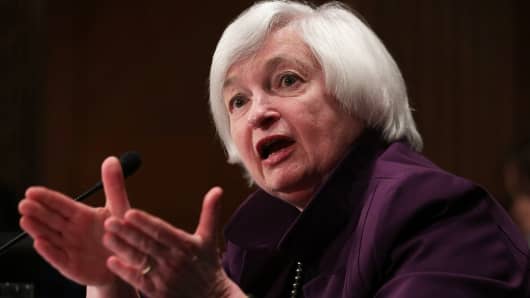The unwavering belief that the Chinese economy was a perpetual growth engine became a pillar of the bull market, but the pillar crumbled this summer. Actually, the Chinese economy had been sputtering for a while, but it took the devaluation of the currency to change investor perception. The second pillar of the bull market is the so-called Fed Put, and its structural integrity is about to be tested.
For the better part of 2015, the U.S. stock market traded in a historically narrow range as investors disputed the signal of falling commodity prices. When the bulls charged, they declared that falling commodity prices were a result of oversupply, but when the bears roared back it was about falling demand from a weak Chinese economy. On Aug. 11, the Chinese government devalued its currency; four days later the S&P 500 began to crumble, the markets entered a precipitous decline that shaved over $600 billion in market capitalization from U.S. corporations and culminated on Aug. 24 when the Dow Jones industrial average fell over 1,000 points in the first few minutes of trading. The battle was over. … The bears had won.
Now a bigger battle is about to take place.
Since the financial crisis,central bankers have acted like Atlas, holding up the financial markets on their shoulders with the help of quantitative easing. Investors have not only benefited from unprecedented monetary policies but also unprecedented coordination of policies. However, the U.S. Federal Reserve (the biggest and strongest central bank) has declared its intention to take break from holding up the world.
To be fair, the Fed has been doing most of the work. While the Bank of Japan has shouldered some of the burden, it took the European Central Bank a long time to begin its monetary easing. Now that "other" central banks are printing money, the Fed has said it needs a break — but its timing could not be worse.
The slowdown in the global economy has been most notable in the emerging markets dependent on commodity exports. Brazil is a prime example of a high-growth economy that has been decimated by low oil and iron ore prices. Adding to Brazil's misery is a political crisis that is part and parcel to an economic decline. Now this emerging market economic decline is beginning to impact the United States.
The U.S. jobs report for both September and August showed that job creation is decelerating. But even before the disappointing jobs report, other forward-looking economic indicators were exhibiting signs of weakness. On Oct. 1, the ISM Manufacturing Index (a closely watched gauge of economic activity) printed a 50.2 reading, just shy of economic contraction. Any reading of the ISM Index that is below 50 is considered to indicate a slowdown in the economy and an early warning sign of recession.
The signs of a slowdown and possible recession are clear, yet the Fed is fixated on raising interest rates.
Will Atlas shrug?
If the Fed is truly data dependent, then it is hard to see how it could justify raising interest rates at this point in the economic cycle. In fact, market participants are beginning to openly talk about QE4. Investors have been conditioned to expect the Fed to hold up the world anytime the data turn negative. But the Fed has painted itself into a corner — it has committed to "liftoff' despite the weak data — and herein lies the battle.
Obedient investors will buy stocks expecting the Fed to change course and abandon the planned rate increase. If the Fed refuses to budge, investors will throw another tantrum, causing stocks to fall. The belief is that falling stocks will force the Fed to continue to support asset prices, but the danger is that the Fed does not comply.
The push and pull between markets and policymakers is the battle that will be fought during the fourth quarter. The good news for traders is that volatility is here to stay, the bad news for investors is that the outcome of this battle is far from clear. The Fed wants out of the asset-support game, but if it shrugs, another major pillar of the bull market will crumble.
Brian Kelly is founder and managing member of Brian Kelly Capital LLC, a global macro investment firm catering to high net worth individuals, family offices and institutions. He is also the creator of the BKCM Indexes, benchmarks for multi-asset money managers. He's also the author of the upcoming book, "The Bitcoin Big Bang: How Alternative Currencies Are About to Change the World." Kelly, a CNBC contributor, often appears on "Fast Money." Follow him on Twitter @BKBrianKelly.




.png)


